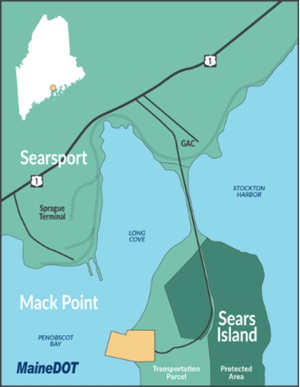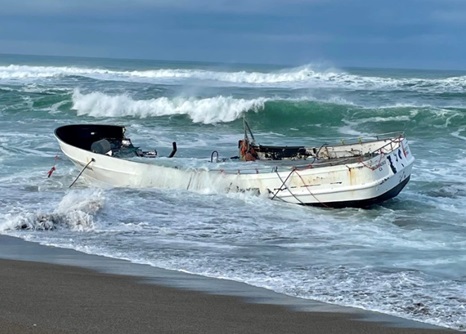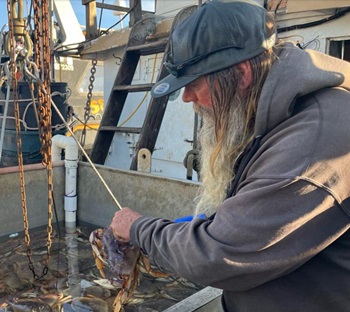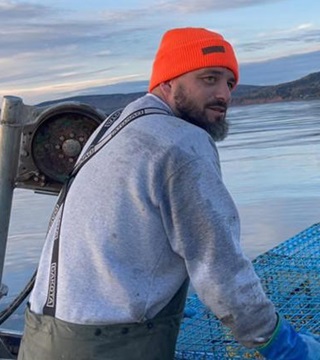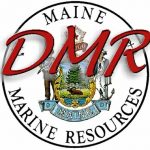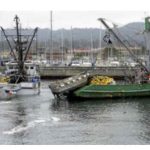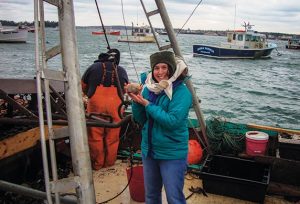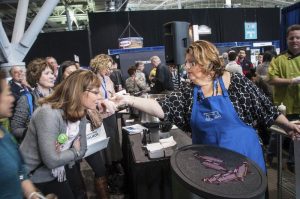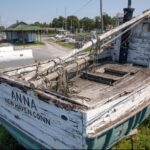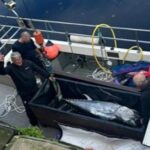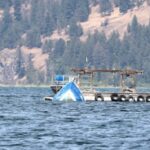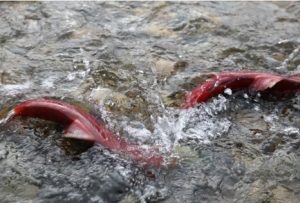Monthly Archives: February 2024
Response to ASP Grievance on Crab Tie-Up – What the Decision Means and Next Steps
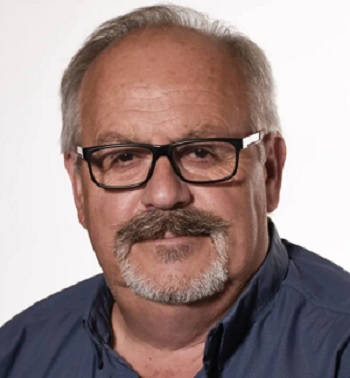 Statement from Greg Pretty, FFAW-Unifor President – February 21, 2024 – The 2023 crab tie-up was an extremely difficult time for the entire province and our members in both fishing and processing. Unfortunately, fish harvesters felt they had to act but outdated legislation makes it illegal for harvesters to strike, as well as illegal for the Union to ‘authorize or declare a cessation of business dealings’ It is this specific language where the arbitrator found FFAW-Unifor liable. Instead of helping to resolve the catastrophically low-price in spring of 2023, ASP sat back and watched the fishery fall – only later deciding to take legal action 6 months after the issue was resolved and fishery complete. more, >>click to read<< 08:14
Statement from Greg Pretty, FFAW-Unifor President – February 21, 2024 – The 2023 crab tie-up was an extremely difficult time for the entire province and our members in both fishing and processing. Unfortunately, fish harvesters felt they had to act but outdated legislation makes it illegal for harvesters to strike, as well as illegal for the Union to ‘authorize or declare a cessation of business dealings’ It is this specific language where the arbitrator found FFAW-Unifor liable. Instead of helping to resolve the catastrophically low-price in spring of 2023, ASP sat back and watched the fishery fall – only later deciding to take legal action 6 months after the issue was resolved and fishery complete. more, >>click to read<< 08:14
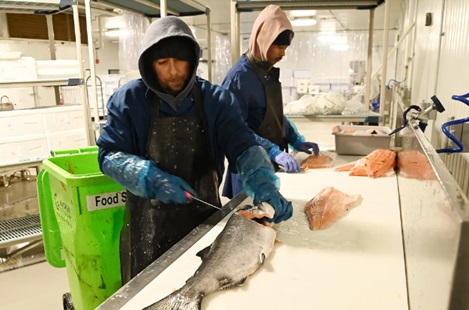
Fish skin, scales touted as future economic boon for Mich., Great Lakes
The fillets that depart Motor City Seafood Co. are tidy, ready to be packaged, shipped and prepared fresh at a Metro Detroit kitchen. They don’t start that way. The Highland Park seafood distributor mostly imports whole fish. Workers fillet them by hand or send them through a system of machines that remove the scales, heads, organs and bones before they are skinned and packed away. Motor City Seafood is left with packages of carefully cut fillets and a big green bucket of the rest — skin, scales, heads, guts. While unsightly when piled in the bucket, those offcuts could be a wellspring for the region’s commercial fish industry. more, >>click to read<< 07:14
FFAW broke collective agreement by telling crab fishermen to keep boats tied up, arbitrator rules
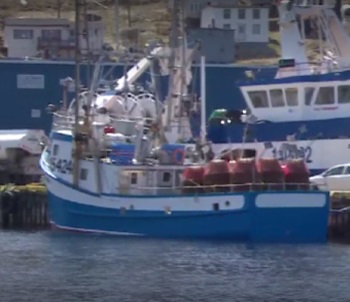 An arbitrator has ruled the Fish, Food & Allied Workers union broke its collective agreement with the Association of Seafood Producers by telling crab harvesters to keep their boats tied up at the start of last season amid a price dispute. In his decision, shared by the producers’ association Tuesday, arbitrator David Orsborn concluded the union declared a “cessation of business dealings,” which violated the terms of the agreement and the Fishing Industry Collective Bargaining Act. The tie-up lasted six weeks, and was fuelled by calls for better prices for harvesters. The price of snow crab was originally set at $2.20 per pound — where it remained when the tie-up ended — but rose to $2.60 per pound by the end of the season. Video, more, >>click to read<< 17:52
An arbitrator has ruled the Fish, Food & Allied Workers union broke its collective agreement with the Association of Seafood Producers by telling crab harvesters to keep their boats tied up at the start of last season amid a price dispute. In his decision, shared by the producers’ association Tuesday, arbitrator David Orsborn concluded the union declared a “cessation of business dealings,” which violated the terms of the agreement and the Fishing Industry Collective Bargaining Act. The tie-up lasted six weeks, and was fuelled by calls for better prices for harvesters. The price of snow crab was originally set at $2.20 per pound — where it remained when the tie-up ended — but rose to $2.60 per pound by the end of the season. Video, more, >>click to read<< 17:52
Grants available for municipal and regional projects in coastal communities
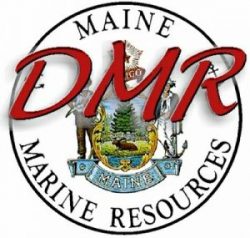 The Department of Marine Resources’ Maine Coastal Program (MCP) and the Department of Agriculture, Conservation and Forestry’s Municipal Planning Assistance Program (MPAP) are seeking applications for coastal planning grants totaling approximately $300,000. Funding for these planning grants comes from the Maine Coastal Program’s annual grant from the National Oceanic and Atmospheric Administration (NOAA). In response to the significant impacts of recent storms experienced by Maine’s coastal communities, the FY 2025 Coastal Community Grant Program and Shore and Harbor Planning Grant Program are being combined into one grant program. The matching fund requirement has been eliminated and the application process has been modified to include a Letter of Intent, followed by a final application by invitation only. Lots of links, and information. more >>click to read<< 16:39
The Department of Marine Resources’ Maine Coastal Program (MCP) and the Department of Agriculture, Conservation and Forestry’s Municipal Planning Assistance Program (MPAP) are seeking applications for coastal planning grants totaling approximately $300,000. Funding for these planning grants comes from the Maine Coastal Program’s annual grant from the National Oceanic and Atmospheric Administration (NOAA). In response to the significant impacts of recent storms experienced by Maine’s coastal communities, the FY 2025 Coastal Community Grant Program and Shore and Harbor Planning Grant Program are being combined into one grant program. The matching fund requirement has been eliminated and the application process has been modified to include a Letter of Intent, followed by a final application by invitation only. Lots of links, and information. more >>click to read<< 16:39
An era ends: Wanchese seafood operation to close in March
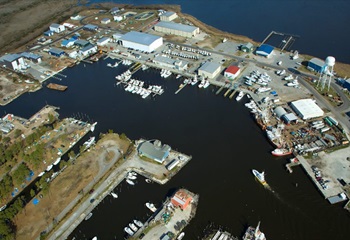 Started as a small business 88 years ago by a native Outer Banks fisherman, the Wanchese Fish Co., now a global behemoth, is closing the doors of its production fish offloading and packing operations here. The fish operation on Mill Landing Road in this historic fishing village on the south end of Roanoke Island will be shuttered March 29,,, Wanchese Fish Co., located along the wharf in Wanchese Marine Industrial Park, was purchased by Cooke Seafood USA in 2015, part of the Cooke family’s international aquaculture and seafood company. The Wanchese company had maintained its family-owned operation after the sale. Wanchese Trawl & Supply Co., a marine and fishing equipment retail store that Wanchese Fish Co. started in 1976, will remain open, Richardson said. Also, Shoreland Transport USA, an associated cargo and freight company based in Suffolk, will continue to operate its Outer Banks route. more, >>click to read<< 10:57
Started as a small business 88 years ago by a native Outer Banks fisherman, the Wanchese Fish Co., now a global behemoth, is closing the doors of its production fish offloading and packing operations here. The fish operation on Mill Landing Road in this historic fishing village on the south end of Roanoke Island will be shuttered March 29,,, Wanchese Fish Co., located along the wharf in Wanchese Marine Industrial Park, was purchased by Cooke Seafood USA in 2015, part of the Cooke family’s international aquaculture and seafood company. The Wanchese company had maintained its family-owned operation after the sale. Wanchese Trawl & Supply Co., a marine and fishing equipment retail store that Wanchese Fish Co. started in 1976, will remain open, Richardson said. Also, Shoreland Transport USA, an associated cargo and freight company based in Suffolk, will continue to operate its Outer Banks route. more, >>click to read<< 10:57
Washington attorney general charges seafood wholesaler with felonies over failure to report purchases
 Tacoma wholesale fish dealer Westlake Seafood has been charged with multiple felonies for allegedly failing to report thousands of dollars’ worth of sea urchin and Dungeness crab purchases to the Washington Department of Fish and Wildlife. The business, which operates a warehouse in the Dome District at 2615 E. N St., was formed in 2017 and on its website claims to export 90 percent of its live products to China and sell the rest in local and domestic markets. According to charging documents filed Thursday, an inspection of its warehouse and financial records in March last year discovered four unreported fish-receiving tickets amounting to $13,760.90 worth of purchases from fishermen. more, >>click to read<< 09:22
Tacoma wholesale fish dealer Westlake Seafood has been charged with multiple felonies for allegedly failing to report thousands of dollars’ worth of sea urchin and Dungeness crab purchases to the Washington Department of Fish and Wildlife. The business, which operates a warehouse in the Dome District at 2615 E. N St., was formed in 2017 and on its website claims to export 90 percent of its live products to China and sell the rest in local and domestic markets. According to charging documents filed Thursday, an inspection of its warehouse and financial records in March last year discovered four unreported fish-receiving tickets amounting to $13,760.90 worth of purchases from fishermen. more, >>click to read<< 09:22
Commercial Fisherman in Northern California Takes Legal Action to Challenge Dock Prices
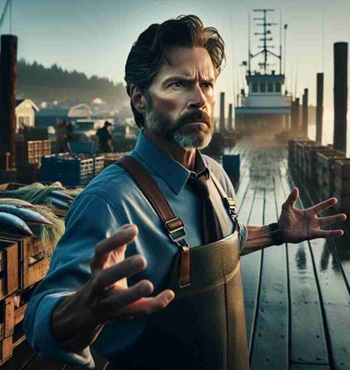 In the commercial fishing industry, rising costs, particularly fuel prices, have long been a major concern for fishermen across the United States. However, one commercial harvester in Northern California has taken a different approach to address the issue by bringing the matter to court. Recognizing the significant impact of dock prices on their livelihood, this fisherman has decided to challenge the current pricing structure through legal action. While many others have voiced their concerns about rising costs, this individual has taken a proactive stance by seeking legal remedies. By challenging the dock prices through legal means, this fisherman hopes to encourage a wider dialogue about the financial hardships faced by those in the fishing industry. more, >>click to read<< 07:59
In the commercial fishing industry, rising costs, particularly fuel prices, have long been a major concern for fishermen across the United States. However, one commercial harvester in Northern California has taken a different approach to address the issue by bringing the matter to court. Recognizing the significant impact of dock prices on their livelihood, this fisherman has decided to challenge the current pricing structure through legal action. While many others have voiced their concerns about rising costs, this individual has taken a proactive stance by seeking legal remedies. By challenging the dock prices through legal means, this fisherman hopes to encourage a wider dialogue about the financial hardships faced by those in the fishing industry. more, >>click to read<< 07:59
In crabbers’ turbulent moment, Edmonds seafood processor ‘saved our season’
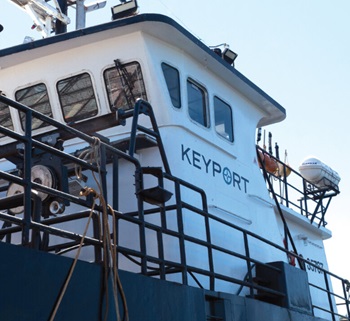 When a seafood processing plant in Alaska shut down in the middle of crabbing season, fishermen found themselves in a pinch. Under the state’s quota system, harvesters can only catch a set amount of crab each year. And they must deliver 90% of their catch to a processor with a corresponding quota With the Peter Pan Seafood facility closed this winter in King Cove, there was no one to process their catch. That’s when Keyport, an Edmonds-based company, stepped up to the plate. “When Peter Pan announced they were shutting down, a lot of fishermen came to us asking for help,” Keyport CEO Mark Pedersen said. more, >>click to read<< 16:18
When a seafood processing plant in Alaska shut down in the middle of crabbing season, fishermen found themselves in a pinch. Under the state’s quota system, harvesters can only catch a set amount of crab each year. And they must deliver 90% of their catch to a processor with a corresponding quota With the Peter Pan Seafood facility closed this winter in King Cove, there was no one to process their catch. That’s when Keyport, an Edmonds-based company, stepped up to the plate. “When Peter Pan announced they were shutting down, a lot of fishermen came to us asking for help,” Keyport CEO Mark Pedersen said. more, >>click to read<< 16:18
NCFA WEEKLY UPDATE FOR February 19, 2024
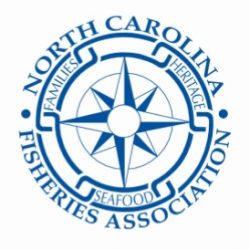 Proposed shrimp trawl area closures to “protect” submerged aquatic vegetation (SAV). Once again, the North Carolina Marine Fisheries Commission (MFC) will be discussing adopting further regulations for North Carolina’s shrimp trawl fishery. At the February MFC meeting they will be reviewing recommendations from the Division of Marine Fisheries to close numerous areas to shrimp trawling to “protect” SAV. While the NCFA shares fishermen’s concerns over the areas DMF wants to close to trawling our primary concerns are not with the specific areas DMF wishes to close. Our concerns are, first, are the areas closures, any of them, necessary, and second, is the process proposed for implementing these closures, specifically proclamation authority, legal? Are these closures necessary? more, >>click to read<< 13:03
Proposed shrimp trawl area closures to “protect” submerged aquatic vegetation (SAV). Once again, the North Carolina Marine Fisheries Commission (MFC) will be discussing adopting further regulations for North Carolina’s shrimp trawl fishery. At the February MFC meeting they will be reviewing recommendations from the Division of Marine Fisheries to close numerous areas to shrimp trawling to “protect” SAV. While the NCFA shares fishermen’s concerns over the areas DMF wants to close to trawling our primary concerns are not with the specific areas DMF wishes to close. Our concerns are, first, are the areas closures, any of them, necessary, and second, is the process proposed for implementing these closures, specifically proclamation authority, legal? Are these closures necessary? more, >>click to read<< 13:03
“You saved someone’s life,”- Commercial Fisherman makes dramatic rescue
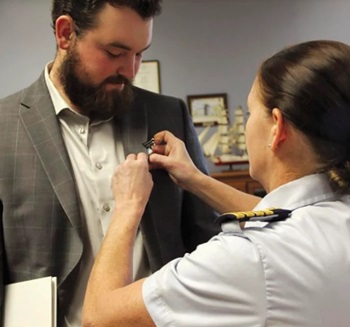 Near sunset last Nov. 6, commercial fisherman John Genther of Madison was steering his boat back home after a day of catching whelk when he spotted a bright blue object about a half mile ahead in the water. As he maneuvered closer, he realized it was a man wrapped in winter clothing, without a life preserver, clinging to the side of an overturned skiff in 55-degree water. Genther immediately recognized the signs of hypothermia and knew what to do, thanks to a first aid training he completed less than two weeks earlier. “You saved someone’s life,” said Nick Lajoie, commander and chief of response for Coast Guard Sector Long Island Sound, speaking to Genther and a roomful of attendees at a ceremony on Feb. 8 honoring the heroic act. “It’s a big deal.” more, >>click to read<< 10:22
Near sunset last Nov. 6, commercial fisherman John Genther of Madison was steering his boat back home after a day of catching whelk when he spotted a bright blue object about a half mile ahead in the water. As he maneuvered closer, he realized it was a man wrapped in winter clothing, without a life preserver, clinging to the side of an overturned skiff in 55-degree water. Genther immediately recognized the signs of hypothermia and knew what to do, thanks to a first aid training he completed less than two weeks earlier. “You saved someone’s life,” said Nick Lajoie, commander and chief of response for Coast Guard Sector Long Island Sound, speaking to Genther and a roomful of attendees at a ceremony on Feb. 8 honoring the heroic act. “It’s a big deal.” more, >>click to read<< 10:22
New Zealand: Rollout of cameras on fishing boats under review
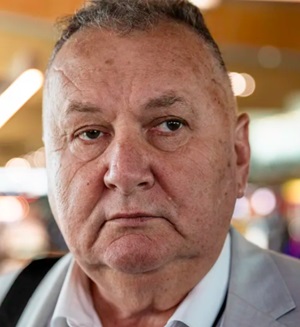 The future roll-out of cameras on fishing boats is back on the table on Monday. Top fishing company executives and senior officials from the Ministry for Primary Industries (MPI) will meet to discuss challenges and future options for the programme. Labour brought in the regime to put cameras on commercial fishing vessels to improve under-reporting around bycatch of species like penguins, dolphins and seals. Cameras been installed on about 300 in-shore vessels already, but the future of the roll-out may be up in the air. more, >>click to read<< 09:12
The future roll-out of cameras on fishing boats is back on the table on Monday. Top fishing company executives and senior officials from the Ministry for Primary Industries (MPI) will meet to discuss challenges and future options for the programme. Labour brought in the regime to put cameras on commercial fishing vessels to improve under-reporting around bycatch of species like penguins, dolphins and seals. Cameras been installed on about 300 in-shore vessels already, but the future of the roll-out may be up in the air. more, >>click to read<< 09:12
New Fisheries Protective Co-operative Taking Inspiration from Past to Help Inshore Fish Harvesters
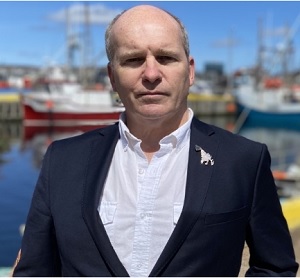 The newly formed Fisheries Protective Co-operative is taking a deliberate page from the past in both its name, and its aim to advance the economic interest of inshore fish harvesters. Spokesperson Ryan Cleary says the name of the new co-op is a direct reference to the Fishermen’s Protective Union formed by William Ford Coaker more than a century ago. Cleary says like Coaker, the FPC was formed to help inshore enterprise owners. more, >>click to read<< 08:16
The newly formed Fisheries Protective Co-operative is taking a deliberate page from the past in both its name, and its aim to advance the economic interest of inshore fish harvesters. Spokesperson Ryan Cleary says the name of the new co-op is a direct reference to the Fishermen’s Protective Union formed by William Ford Coaker more than a century ago. Cleary says like Coaker, the FPC was formed to help inshore enterprise owners. more, >>click to read<< 08:16
Farmers, Fishermen & the Far-Right: An Unlikely Alliance in Rural Europe
 Farmers and fishermen in rural Europe form an unlikely alliance with the far-right to protest against globalization, immigration, and policies threatening their livelihoods. This complex narrative unveils the struggle for survival, identity, and sovereignty in an ever-globalizing world. In the heart of France’s rural expanse, a surprising alliance is taking shape, one that threads through the quiet towns across Europe and stretches its roots deep into the soil of global discontent. Farmers, the bedrock of our sustenance, find themselves in an unlikely camaraderie with fishermen and factions of the far-right, united not by ideology but by a shared sense of siege. more, >>click to read<< 07:03
Farmers and fishermen in rural Europe form an unlikely alliance with the far-right to protest against globalization, immigration, and policies threatening their livelihoods. This complex narrative unveils the struggle for survival, identity, and sovereignty in an ever-globalizing world. In the heart of France’s rural expanse, a surprising alliance is taking shape, one that threads through the quiet towns across Europe and stretches its roots deep into the soil of global discontent. Farmers, the bedrock of our sustenance, find themselves in an unlikely camaraderie with fishermen and factions of the far-right, united not by ideology but by a shared sense of siege. more, >>click to read<< 07:03
F/V Aleutian Storm: A Race Against Time for Salvage and Environmental Protection
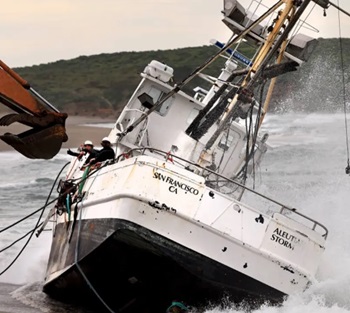 When the F/V Aleutian Storm, a 57-ton fishing vessel laden with Dungeness crab, ran aground at south Salmon Creek Beach on February 9th, it caught the attention of not just local authorities but also the concerned public eye. This wasn’t your ordinary maritime misadventure. The vessel, now a week into its ordeal, faces a grim future. Buffeted by relentless waves and ensnared by its own catch, the Aleutian Storm’s plight is a stark reminder of the ocean’s unforgiving nature. With salvage operations on the horizon, the clock ticks against both the vessel’s structural integrity and the environmental sanctity of the California coast. The community watches with bated breath as salvage operations prepare to unfold. The vessel’s fate hangs in the balance, with the risk of the ocean tearing it apart looming large. more, >>click to read<< 17:52
When the F/V Aleutian Storm, a 57-ton fishing vessel laden with Dungeness crab, ran aground at south Salmon Creek Beach on February 9th, it caught the attention of not just local authorities but also the concerned public eye. This wasn’t your ordinary maritime misadventure. The vessel, now a week into its ordeal, faces a grim future. Buffeted by relentless waves and ensnared by its own catch, the Aleutian Storm’s plight is a stark reminder of the ocean’s unforgiving nature. With salvage operations on the horizon, the clock ticks against both the vessel’s structural integrity and the environmental sanctity of the California coast. The community watches with bated breath as salvage operations prepare to unfold. The vessel’s fate hangs in the balance, with the risk of the ocean tearing it apart looming large. more, >>click to read<< 17:52
Contessi Demonstrates Its Confidence
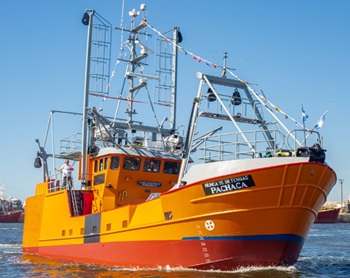 Mar del Plata shipyard Astillero Contessi has launched a new coastal fresher trawler to operate in the Patagonian ports of Rawson and Comodoro Rivadavia. The yard not only celebrated the delivery of its 147th newbuild, but also the opening of a new fabrication hall capable of handling hull lengths of up to 85 metres. Nunca te detengas Pachaca replaces Pachaca, a similar vessel delivered by Contessi in 2006. The 21-metre trawler has 15% more carrying capacity than the vessel it replaces, a prerogative of operators who place orders with domestic shipyards to renew their fleets. Video, photos, more, >>click to read<< 14:54
Mar del Plata shipyard Astillero Contessi has launched a new coastal fresher trawler to operate in the Patagonian ports of Rawson and Comodoro Rivadavia. The yard not only celebrated the delivery of its 147th newbuild, but also the opening of a new fabrication hall capable of handling hull lengths of up to 85 metres. Nunca te detengas Pachaca replaces Pachaca, a similar vessel delivered by Contessi in 2006. The 21-metre trawler has 15% more carrying capacity than the vessel it replaces, a prerogative of operators who place orders with domestic shipyards to renew their fleets. Video, photos, more, >>click to read<< 14:54
‘Deadliest Catch’: Will There Be a Season 20?
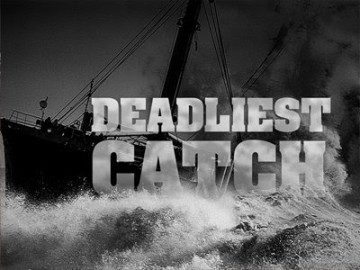 For nearly two decades, Discovery Channel’s reality series Deadliest Catch has offered TV viewers an inside look at the rough-and-tumble world of commercial fishing. The show, which follows fishermen as they hunt the Bering Sea for crab and other seafood, last aired new episodes in September 2023. Now, fans are wondering if and when it might return with new episodes. Here’s what we know so far about Deadliest Catch Season 20. In recent seasons of Deadliest Catch, viewers have seen the effect dramatic changes in seafood populations in the Bering Sea have had on commercial fishermen. more, >>click to read<< 1o:59
For nearly two decades, Discovery Channel’s reality series Deadliest Catch has offered TV viewers an inside look at the rough-and-tumble world of commercial fishing. The show, which follows fishermen as they hunt the Bering Sea for crab and other seafood, last aired new episodes in September 2023. Now, fans are wondering if and when it might return with new episodes. Here’s what we know so far about Deadliest Catch Season 20. In recent seasons of Deadliest Catch, viewers have seen the effect dramatic changes in seafood populations in the Bering Sea have had on commercial fishermen. more, >>click to read<< 1o:59
50 commercial watermen and women help with 10th annual Lost Fishing Gear Recovery Project
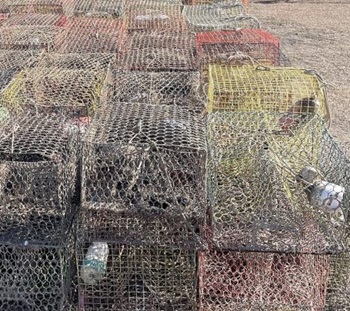 The North Carolina Coastal Federation has announced that the 10th year of its Lost Fishing Gear Recovery Project is wrapping up, and usable, tagged lost gear is ready to be reclaimed. The Coastal Federation said that along the state’s coast, 50 commercial watermen and women collectively spent nearly 150 working days on the water throughout January retrieving lost crab pots from the sounds. An additional part of the project will take place in Marine Patrol District 1 in the northeast region, the nonprofit said. Whole pots, in good condition, recovered from the Albemarle and Pamlico Sound region will be available for the rightful property owners to claim. This includes crab pots retrieved from the Virginia state line and Manteo to Swan Quarter and from the Outer Banks to Ocracoke. more, >>click to read<< 09:25
The North Carolina Coastal Federation has announced that the 10th year of its Lost Fishing Gear Recovery Project is wrapping up, and usable, tagged lost gear is ready to be reclaimed. The Coastal Federation said that along the state’s coast, 50 commercial watermen and women collectively spent nearly 150 working days on the water throughout January retrieving lost crab pots from the sounds. An additional part of the project will take place in Marine Patrol District 1 in the northeast region, the nonprofit said. Whole pots, in good condition, recovered from the Albemarle and Pamlico Sound region will be available for the rightful property owners to claim. This includes crab pots retrieved from the Virginia state line and Manteo to Swan Quarter and from the Outer Banks to Ocracoke. more, >>click to read<< 09:25
Less Effort and Better Catches with New-Concept Crab Gear
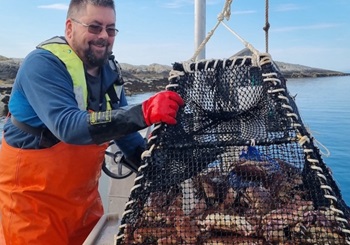 It was a shoulder injury that prompted Norwegian crab fisherman Jim Harald Sæternes to take a hard look at the way things have always been done, and to come up with a set of new ideas – which have been highly successful. So that he could continue to fish without adding to the strain on his shoulder, he developed the design of a larger and more effective crab pot, as well as a handling system for his boat that took out the repetitive heavy lifting – the root cause of his health problems. But the catch rates that his Vikingteina (the name means Viking Traps) pots have shown is the clincher. Photos, more, >>click to read<< 17:21
It was a shoulder injury that prompted Norwegian crab fisherman Jim Harald Sæternes to take a hard look at the way things have always been done, and to come up with a set of new ideas – which have been highly successful. So that he could continue to fish without adding to the strain on his shoulder, he developed the design of a larger and more effective crab pot, as well as a handling system for his boat that took out the repetitive heavy lifting – the root cause of his health problems. But the catch rates that his Vikingteina (the name means Viking Traps) pots have shown is the clincher. Photos, more, >>click to read<< 17:21
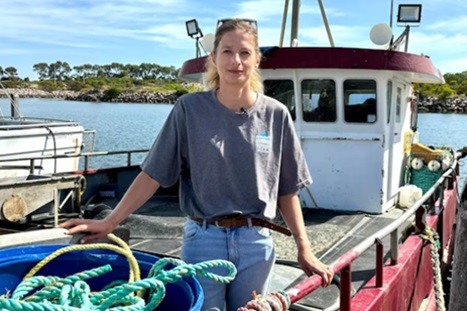
Tourism, Indigenous groups welcome WA’s South Coast Marine Park, but opposition from commercial fishers
The Western Australian government has proposed closing a quarter of waters between Bremer Bay and the South Australian border to all fishing under its new south coast marine park plan. The proposed park will span 1,000 kilometres of coastline, with the aquatic activities allowed in some areas unchanged, others reduced, and some banned altogether. Manue Daniels has been fishing commercially from Esperance with her family for 15 years. She said the consultation process had been long, frustrating and taken a toll on her mental health. Ms Daniles said she still hoped the government would do the right thing. “I think it just shows that this government puts no value towards what we do. We are just second-class citizens,” she said. more, >>click to read<< 14:55
Maine lobster industry reacts to right whale found entangled in rope
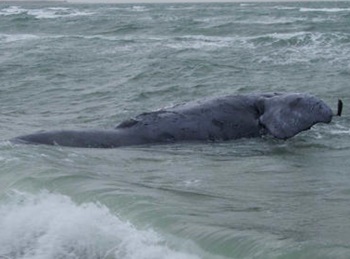 Maine’s lobster industry is responding following the discovery of a dead North Atlantic right whale near Martha’s Vineyard last month. According to federal authorities, the whale was entangled in fishing rope, including portions traced back to Maine. While NOAA has yet to determine the exact cause of the whale’s demise, Maine lobstermen are fearing potential blame. “They’re going to say that the rope, you know, caused harm to the whale, and over time, it just was a very slow death,” said John Drouin, a Lobsterman from Cutler with over 40 years of experience. The incident marks the first documented interaction between a right whale and Maine fishing gear in over two decades. more, >>click to read<< 11:49
Maine’s lobster industry is responding following the discovery of a dead North Atlantic right whale near Martha’s Vineyard last month. According to federal authorities, the whale was entangled in fishing rope, including portions traced back to Maine. While NOAA has yet to determine the exact cause of the whale’s demise, Maine lobstermen are fearing potential blame. “They’re going to say that the rope, you know, caused harm to the whale, and over time, it just was a very slow death,” said John Drouin, a Lobsterman from Cutler with over 40 years of experience. The incident marks the first documented interaction between a right whale and Maine fishing gear in over two decades. more, >>click to read<< 11:49
Retired Commercial Fisherman Darryl Olson of Petersburg, Alaska, has passed away
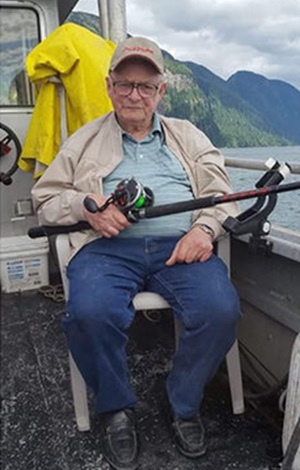 Darryl Olson was born on January 18, 1942, in Petersburg, Alaska, to Dagney Marie (Loseth) Olson and Paul “Bud” Ivar Olson. Darryl grew up fishing with his father, Paul. He attended Petersburg High School and after graduation he married his dream girl, Mary Ann Hasbrouck, on March 10, 1962. They were happily married for fifty-nine years, when she preceded him in death in 2021. He worked for J&H Logging as a choker setter until he started his career as a commercial fisherman. After leasing two boats, Darryl bought the F/V Miss Helen. In 1972, Darryl and Mary Ann began building their Petersburg home. That same year, Darryl purchased his dreamboat, the F/V Mary Ann, with the help of Robert Thorstenson and Tommy Thompson, of Petersburg Fisheries, Inc. more, >>click to read<< 10:45
Darryl Olson was born on January 18, 1942, in Petersburg, Alaska, to Dagney Marie (Loseth) Olson and Paul “Bud” Ivar Olson. Darryl grew up fishing with his father, Paul. He attended Petersburg High School and after graduation he married his dream girl, Mary Ann Hasbrouck, on March 10, 1962. They were happily married for fifty-nine years, when she preceded him in death in 2021. He worked for J&H Logging as a choker setter until he started his career as a commercial fisherman. After leasing two boats, Darryl bought the F/V Miss Helen. In 1972, Darryl and Mary Ann began building their Petersburg home. That same year, Darryl purchased his dreamboat, the F/V Mary Ann, with the help of Robert Thorstenson and Tommy Thompson, of Petersburg Fisheries, Inc. more, >>click to read<< 10:45
Sam Parisi asks, How Accurate is NOAA and NOAA Fishery Survey Science?
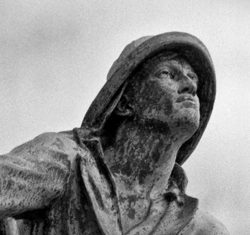 The agency is not required to compare their results with other independent science. The unproven science may bring concern on the health of fish stocks the industry depends upon. Our Fishermen and Fishing Industry depend on sound science. We need a Magnuson Act Amendment which would require NOAA to compare their science with other independent scientific surveys before any restrictions are placed on, or allocation cuts are enacted. Thank you, Sam Parisi. (click here to comment) 07:22
The agency is not required to compare their results with other independent science. The unproven science may bring concern on the health of fish stocks the industry depends upon. Our Fishermen and Fishing Industry depend on sound science. We need a Magnuson Act Amendment which would require NOAA to compare their science with other independent scientific surveys before any restrictions are placed on, or allocation cuts are enacted. Thank you, Sam Parisi. (click here to comment) 07:22Mississippi Launches Commercial Vessel Safety Program to Protect Fishermen
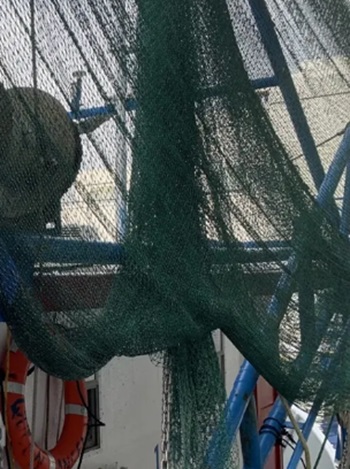 Tomorrow marks the dawn of a safer and more secure future for Mississippi’s commercial fishermen. The Mississippi Department of Marine Resources (MDMR) is set to launch its Commercial Vessel Safety Program, a first-of-its-kind initiative designed to promote safety and compliance with regulations in the industry. The program, which falls under the purview of the 2019 Mississippi Bonnet Carré Fisheries Disaster Recovery Program, is specifically tailored to the needs of commercial fishermen who were licensed in the state in 2019. The MDMR’s Commercial Vessel Safety Program stands as a beacon of hope for Mississippi’s commercial fishermen, offering vital resources to help them operate their vessels safely and legally. The program covers the installation of additional safety equipment on their vessels, ensuring the protection of both fishermen and their crew. more, >>click to read<< 18:03
Tomorrow marks the dawn of a safer and more secure future for Mississippi’s commercial fishermen. The Mississippi Department of Marine Resources (MDMR) is set to launch its Commercial Vessel Safety Program, a first-of-its-kind initiative designed to promote safety and compliance with regulations in the industry. The program, which falls under the purview of the 2019 Mississippi Bonnet Carré Fisheries Disaster Recovery Program, is specifically tailored to the needs of commercial fishermen who were licensed in the state in 2019. The MDMR’s Commercial Vessel Safety Program stands as a beacon of hope for Mississippi’s commercial fishermen, offering vital resources to help them operate their vessels safely and legally. The program covers the installation of additional safety equipment on their vessels, ensuring the protection of both fishermen and their crew. more, >>click to read<< 18:03
Half Moon Bay Odd Fellows Speakers Series presents “Ernie Koepf – Fish Tales”
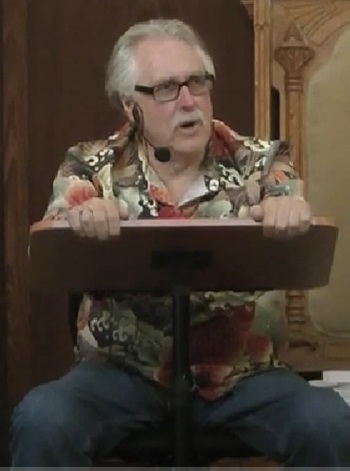 Much change has come about to Princeton and the fisheries of the West Coast. The history of the Coastside is also rich with change. Ernie Koepf is here to speak on both. Ernie Koepf was born (1951) and raised in Moss Beach and raised his own family in El Granada. He now resides in the hills of Oakland with his wife of 16 years, Jan Moestue. Early in his life he was initiated into the fishing community and was known as Little Ernie to his father’s Big Ernie, a prominent commercial fisherman in the community. Coming of age, Ernie Koepf (the junior) began his own fishing career. He retired in 2016 after fishing his two boats for 30 years for salmon and crab and 45 years for herring in SF Bay. To his fishing credits he also adds two years in Bristol Bay and two years in Southeast Alaska. VIDEO. From the Half Moon Bay Odd Fellows lecture presented and recorded on September 6th, 2024 at 7:00pm. more, >>click to read & watch<< 15:31
Much change has come about to Princeton and the fisheries of the West Coast. The history of the Coastside is also rich with change. Ernie Koepf is here to speak on both. Ernie Koepf was born (1951) and raised in Moss Beach and raised his own family in El Granada. He now resides in the hills of Oakland with his wife of 16 years, Jan Moestue. Early in his life he was initiated into the fishing community and was known as Little Ernie to his father’s Big Ernie, a prominent commercial fisherman in the community. Coming of age, Ernie Koepf (the junior) began his own fishing career. He retired in 2016 after fishing his two boats for 30 years for salmon and crab and 45 years for herring in SF Bay. To his fishing credits he also adds two years in Bristol Bay and two years in Southeast Alaska. VIDEO. From the Half Moon Bay Odd Fellows lecture presented and recorded on September 6th, 2024 at 7:00pm. more, >>click to read & watch<< 15:31
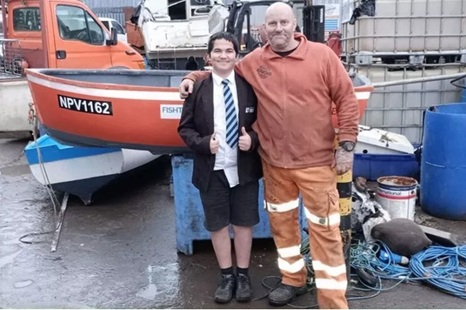
Heartbreak for young fisherman after lad’s boat found dashed on rocks
Tragedy struck for a young Cornish fisherman after his boat was found dashed to pieces on rocks after drifting away on high tide. Antony Newcombe, 13 and from Cawsand, began selling fresh fish and crabs he had caught “with no carbon foot print on Cawsand beach”. The young fisherman had hoped to sell enough to upgrade to a bigger vessel this year. At high tide a few days ago, Anthony’s boat, along with another vessel, reportedly floated off during high-tide, according to a digital fundraiser. “After a search for a few days his boat was finally found; sadly smashed into many pieces on the local rocks. Of course, this didn’t just leave Antony’s boat devastated but him too,” the GoFundMe page reads. more, >>click to read<< 11:38
Crab gear reduction for commercial fishers extended through mid-March
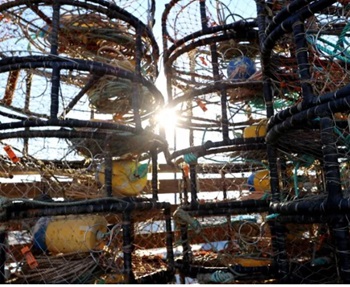 Less than a month after the commercial Dungeness crab season opened in the Monterey Bay region, the California Department of Fish and Wildlife (CDFW) has extended the gear reduction in all fishing zones south of the Mendocino/Sonoma County line. “It’s about the minimum we can survive on viably,” fisher Tim Obert told Lookout in January. Obert is a Santa Cruz native who has fished commercially for more than two decades. He serves as president of the Santa Cruz Commercial Fishermen’s Association and sits on the state’s Dungeness Crab Task Force. more, >>click to read<< 10:42
Less than a month after the commercial Dungeness crab season opened in the Monterey Bay region, the California Department of Fish and Wildlife (CDFW) has extended the gear reduction in all fishing zones south of the Mendocino/Sonoma County line. “It’s about the minimum we can survive on viably,” fisher Tim Obert told Lookout in January. Obert is a Santa Cruz native who has fished commercially for more than two decades. He serves as president of the Santa Cruz Commercial Fishermen’s Association and sits on the state’s Dungeness Crab Task Force. more, >>click to read<< 10:42






